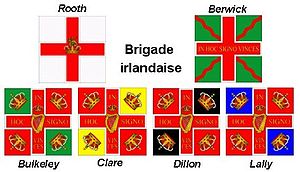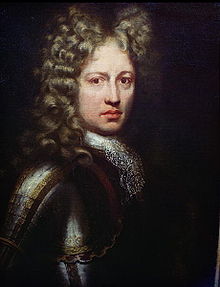I love reading this TL
Hi,
Congratulations, you have done a Very Good Job! Please continue! I enjoy reading timelines were France performs better...
I am doing several "constructive comments" because I believe France deserve a better outcome.
ITTL France have a better position that in the OTL Treaty of Ryswick (in the OTL France was far most exhausted and the military situation was far less better).
I like the idea of temporary divided England (I suppose that Louis XIV will support James only for seeing England week, but how long? I see James as a currency for negotiation).
I consider that Louis will not give back to Spain both the Spanish Netherlands and the Catalonia. France had the upper hand there and both region were mostly occupied by France + the Catalans were favorable to Louis. I think more plausible is giving up only one in exchange of the other or a better partition of Spanish Netherlands.
How strong was the English presence in America ? I think the southern colonies were not yet established or not very populated... How strong is the emigration, both in English (home devastated by war) and French territories (home devastated by war attrition and famine)?
Wiki give the number of the population in American English colonies by 1688 at 200 000 ( http://en.wikipedia.org/wiki/Thirteen_Colonies ), including natives and slaves.
The Edict of Nantes was still revoked ITTL (1685) ? If yes, can we see a revocation of the Edict of Fontainebleau as a treaty clause (something similar to Edict of Tolerance)? Or at least an "Don't ask, don't tell" policy (french version, of course) ?
?
What is the situation in Italy ?
How the Dutch have sorted out with so easy conditions?
I would like to see a reform in the french finances... (something like, Louis force his nobles and clergy to pay taxes as all the subjects for finance the war).
I would love to see Louis, Le Grand Dauphin, or his son, Louis Le Petit Dauphin become "Par la grâce de Dieu, Roi de France et de Navarre"
Can you detail a little the situation in India ? What are the holdings of France, Dutch and England (if there are any)?
In this war were done very important military innovations (e.g. the flintlock, the socket-bayonet), are those still happened ?
John Churchill, 1st Duke of Marlborough, is still alive ?
Maybe a map of Europe only will be more useful...
The link below is the OTL situation after the treaty :
http://upload.wikimedia.org/wikipedia/commons/3/3b/Europe,_1700_-_1714.png
and the low Countries :
http://upload.wikimedia.org/wikipedia/commons/6/61/Low_Countries_1700.png
Hi,
Congratulations, you have done a Very Good Job! Please continue! I enjoy reading timelines were France performs better...
I am doing several "constructive comments" because I believe France deserve a better outcome.
ITTL France have a better position that in the OTL Treaty of Ryswick (in the OTL France was far most exhausted and the military situation was far less better).
I like the idea of temporary divided England (I suppose that Louis XIV will support James only for seeing England week, but how long? I see James as a currency for negotiation).
I consider that Louis will not give back to Spain both the Spanish Netherlands and the Catalonia. France had the upper hand there and both region were mostly occupied by France + the Catalans were favorable to Louis. I think more plausible is giving up only one in exchange of the other or a better partition of Spanish Netherlands.
How strong was the English presence in America ? I think the southern colonies were not yet established or not very populated... How strong is the emigration, both in English (home devastated by war) and French territories (home devastated by war attrition and famine)?
Wiki give the number of the population in American English colonies by 1688 at 200 000 ( http://en.wikipedia.org/wiki/Thirteen_Colonies ), including natives and slaves.
The Edict of Nantes was still revoked ITTL (1685) ? If yes, can we see a revocation of the Edict of Fontainebleau as a treaty clause (something similar to Edict of Tolerance)? Or at least an "Don't ask, don't tell" policy (french version, of course)
What is the situation in Italy ?
How the Dutch have sorted out with so easy conditions?
I would like to see a reform in the french finances... (something like, Louis force his nobles and clergy to pay taxes as all the subjects for finance the war).
I would love to see Louis, Le Grand Dauphin, or his son, Louis Le Petit Dauphin become "Par la grâce de Dieu, Roi de France et de Navarre"
Can you detail a little the situation in India ? What are the holdings of France, Dutch and England (if there are any)?
In this war were done very important military innovations (e.g. the flintlock, the socket-bayonet), are those still happened ?
John Churchill, 1st Duke of Marlborough, is still alive ?
Maybe a map of Europe only will be more useful...
The link below is the OTL situation after the treaty :
http://upload.wikimedia.org/wikipedia/commons/3/3b/Europe,_1700_-_1714.png
and the low Countries :
http://upload.wikimedia.org/wikipedia/commons/6/61/Low_Countries_1700.png



